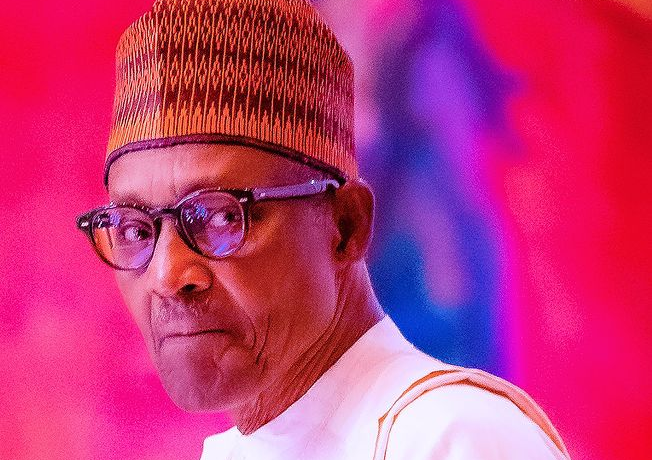Leaving Buhari alone
Former President Muhammadu Buhari made it clear that he wants to be left alone after leaving office. Quite indelicately he said if Nigerians were inclined to bother him then the people of Niger Republic would defend him! The statement was not necessary because Nigerians aren’t in the habit of “disturbing” their past military heads of […]

Former President Muhammadu Buhari made it clear that he wants to be left alone after leaving office. Quite indelicately he said if Nigerians were inclined to bother him then the people of Niger Republic would defend him! The statement was not necessary because Nigerians aren’t in the habit of “disturbing” their past military heads of state or civilian presidents no matter what their failings.
To his credit, Buhari has never been accused of engaging in corrupt practices for financial gain so there is no reason for him to expect a visit from the Economic and Financial Crimes Commission (EFCC). His departure after eight years has been aptly described as the “end of an error”. It was thought that as a leader he would clearly choose between right and wrong in the conduct of public affairs. Unfortunately, that didn’t happen.
His tenure, despite his few achievements, was a failure in leadership characterised by complacency, impunity, violations of law, and wrong implementation of ill-motivated and ill-considered policies. In eight years his administration succeeded in bringing the nation to its knees with a huge debt burden, high inflation, dehumanising standard of living, job losses, massive unemployment, perennial strikes, wanton killings, kidnappings, armed banditry, and mass exodus of citizens to foreign lands. In retrospect, voting Buhari to power, was an error of judgment.
Recent revelations have exposed the fact that he was surrounded by unimaginable sleaze, mostly perpetrated by those his nepotistic tendencies enamoured him to.
Irrespective of whether or not his mandate is being challenged, it has now fallen upon his successor, President Asiwaju Bola Tinubu, to pick up the pieces, steer the nation forward and ensure that the same mistakes aren’t repeated. Tinubu must comprehend three important considerations about national governance. Firstly, rich nations have good institutions, whereas poor countries have bad ones. Secondly, the correlation between poverty and corruption is direct as the richest nations in the world are the least corrupt. Thirdly, clan-based thinking causes poverty because in poor countries tribal sentiments don’t allow them access to the best talents for governance.
President Tinubu must bear these in mind as he makes appointments. The well-publicised Nigeria Air fiasco illustrates the deficit in integrity, credibility, believability, competence and capacity which characterised many of Buhari’s appointees. Regrettably, motivated by nepotistic tendencies, he ignored merit and instead enthroned unprincipled mediocrity.
President Tinubu must realise that Buhari was undoubtedly let down by those he trusted, most of whom he should never have appointed in the first place! In trusting only family members, old schoolmates, kinsmen, religious peers, companions and political affiliates he created a style of governance which Mike Ozeknhome SAN described as one of cronyism, tribalism, undue favouritism, clannishness, religious bigotry, ethnic chauvinism, and ethno-religious jingoism. President Tinubu must ensure that history will not repeat itself.
It may be necessary for him to sit down with his predecessor and get answers to some questions such as, what made him trust these people in the first place. Was there no feedback and control mechanism to detect their fraud and nip it in the bud? Did he not read the reports detailing misdemeanours? Or did he know what was going on but felt he could not bring himself to condemn his personal appointees in public?
President Tinubu claims, just like Buhari, that his great talent is to appoint competent hands, trust them and delegate. He should not fall into the trap of learning, as Buhari did belatedly, that while authority can be delegated, responsibility cannot. The buck will stop at his table! Former Minister for Transport Rotimi Amaechi once claimed that Buhari was averse to reading reports and therefore had only a superficial grasp of what was really going on. This was perhaps reflected in his calamitous eight-year supervision of the affairs of the petroleum ministry. Rather than reading reports to fully comprehend what was going on, he listened to those he trusted who later betrayed his trust.
Before winning the 2015 presidential election, Buhari contended that there was no subsidy on petrol and it was simply a means to fraudulently enrich the then ruling Peoples Democratic Party (PDP) members at the expense of the masses. After eight years in office, he left the nation with the highest amount ever paid out on subsidy.
Recent revelations of goings on in Cameroon and other bordering nations have exposed the fact that the nation’s borders were leaking the fuel for which Buhari was paying subsidy under the illusion that Nigerians were consuming it!
What was most disappointing about Buhari’s loyalty to his appointees is that he showered them with national awards. His blanket conferment of national awards on friends, staff, and cronies, despite failing in their duties, turned the previously prestigious national awards into an embarrassment.
In relation to his desire to be left well alone, it’s difficult to envisage why anyone would want to “disturb: him. Instead of cynics saying that Buhari “came, saw and conquered”, they say he “came did not see and slept”! It seems far-fetched that his services would be required to give lectures on good governance, articulate the need to conform to constitutional limitations on power, or make a speech on how to successfully fight an anti-corruption war.
With the exception of President Tinubu who in order not to make the same mistakes requires answers to certain questions, Nigerians should grant Buhari’s wish to be left alone.
